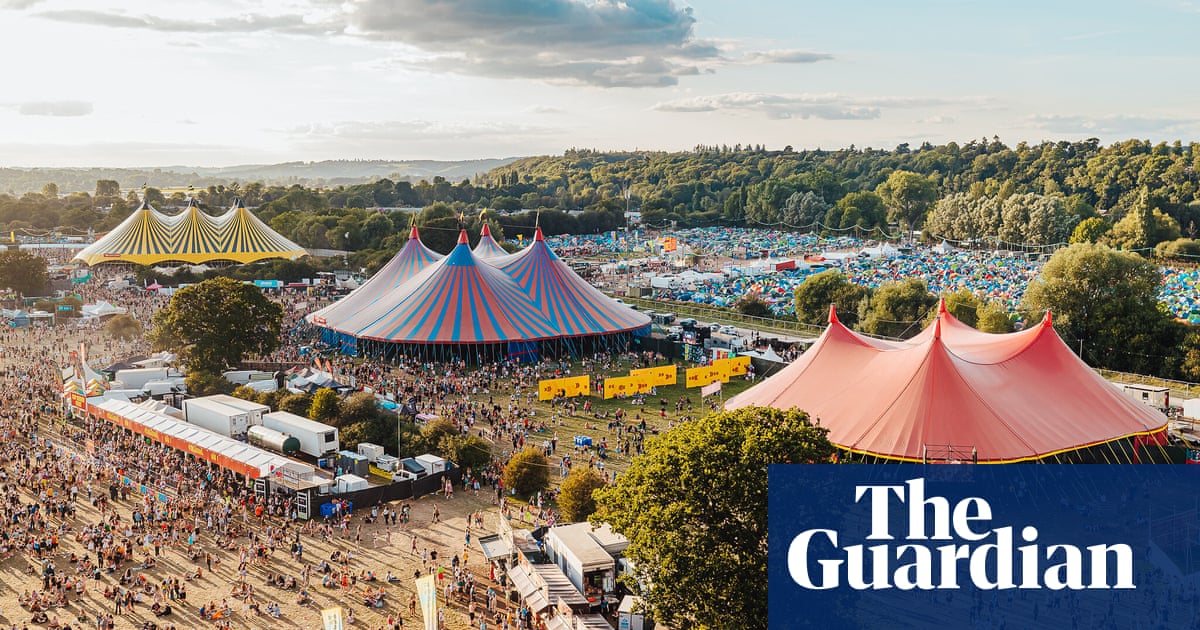
Matt Healy, frontman of Brit award-winning band the 1975, has said the group will only perform at festivals with a gender-balanced lineup.
Healy was responding to a call by the Guardian’s deputy music editor Laura Snapes for the band to “add a condition to your rider that says you’ll only play festivals that commit to X% (ideally 50%!) acts that include women and non-binary performers”. He wrote: “Take this as me signing this contract – I have agreed to some festivals already that may not adhere to this and I would never let fans down who already have tickets. But from now I will, and believe this is how male artists can be true allies.”
He added: “I’m sure my agents are having kittens right now but time’s up man people need to act and not chat.”
Healy’s decision comes in the wake of the announcement of the lineup for Reading and Leeds festival, which continues to skew heavily in favour of male performers. Out of the 91 artists in the first announcement, only 20 are female or feature women. Only three of the 18 acts announced for its main stage include women. Criticising the lineup, Snapes had argued that bands need to “use their leverage to demand equality on the bill”.
Healy told the Guardian that the issue of inclusivity and representation at music festivals was important, “because the people that go to them feel more included and more represented. It’s as simple as that. All the best art for me made me feel personally addressed.”
He praised Reading and Leeds promoter Melvin Benn for helping the band carry out environmental initiatives around their 2019 headline sets at the festival, and at their one-day festival in London’s Finsbury Park this summer. Healy said that if it was possible to make environmental change on this scale – “they have the will to do it that goes outside of personal gain” – the issue of gender inequality at festivals could also be tackled.
Sign up for the Sleeve Notes email: music news, bold reviews and unexpected extras
Read more
Healy said he wanted to see other male musicians taking similar steps to ensure the equal representation of women, non-binary and transgender musicians. “It’s all about action,” he said. “When it comes to big sociopolitical issues and governments are involved, sometimes action or protest can just be ignored. But when it comes to the music industry, we can change that. It’s not a geopolitical nightmare: it’s the music industry, and it’s something that if everyone gets on board, we can fix.”
When asked how he thought how booking agents would respond to his decision, he said he was “very sceptical of the idea of people’s short-term or long-term personal profit not always being paramount”, but that he hoped an influx of younger people in decision-making roles would affect change. “I’m not saying the people in those roles now are blindly ignorant, but people need a kick up the arse. And we should accept that some people are willing to learn.”
The 1975’s Finsbury Park show features seven support acts, six of which feature exclusively female performers. Healy said the billing wasn’t intended as any kind of statement, but as a representation of what he and fans of the 1975 listen to. “So it doesn’t make sense that there’s such a lack of representation [in festival lineups].”
The 1975, who won two Brits awards in 2019 and whose three albums have all topped the UK charts, headlined the Reading and Leeds festival in 2019, where five of the 25 main-stage acts featured women. In another tweet, Healy said: “Point is that Reading and Leeds with more women would be honestly the best festival in the world.”
Critics of Reading and Leeds festival have re-edited the poster to remove all of the male artists to highlight the disparity, a tradition that took off in 2015, when the lineup announcement only featured nine female acts. Other major 2020 festivals have a similarly stark gender split, including Wireless, which features only six female artists across the 43 acts announced so far.
Campaigning against gender inequality in music festivals has been growing in recent years, with festivals including the BBC Proms, Bluedot and Liverpool Sound City signing up to the Keychange initiative, pledging to have at least 50% female artists on their lineups by 2022. Barcelona’s Primavera festival reached the 50% target last year, and continues to meet it with its 2020 lineup.












